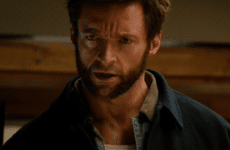By: Jane Benz | Staff Writer
Is the art of film in decline? Can endings no longer be endings? Can a work of art be great without being done violence? Resurrected endlessly for profit until it is no longer great? Do we need a new Lord of the Rings saga? And by Amazon, no less?
Our relationship with the media we consume is rapidly changing. The link between the creator and the consumer is more tenuous than it has ever been. Particularly, large-scale corporate media views its creation as a sanitized, purely formulaic process and its audiences as commodities. Profit is the only incentive for production. To clarify, transaction is not antithetical to art. Given the current philosophy of art for profit’s sake in mainstream media, it is viewed as unprincipled and generally unconscionable by large companies. In the tumorous realm of commercial domination, we now stand witness to a portrait of industry corruption.
I want to offer a defense of Tolkien, first and foremost, rather than a vilification of Amazon. It is arguable that the latter is necessary to the former; the premise of a billion-dollar corporate probing of Middle Earth is incompatible with the ideals central to its very existence. Tolkien himself objected heavily to unfaithful interpretations of his work, even in children’s plays. I will not offer a critique of the technical components of the Rings of Power, such as VFX, worker’s conditions and practical effects or lack thereof. Although there is plenty to be considered in these categories, I am aiming to explore the more abstract ramifications to Tolkien’s legacy and the consequences of a monopolistic system which permits the Rings of Power to exist at all.
Our increasingly postmodern era has trespassed gravely on the integrity of the artist; the rebranding of Tolkien’s world is just one example. It’s nothing new. We have been desensitized. Therefore, from a distance, it may seem dramatic to insinuate moral depravity in response to something as trite as a Lord of the Rings spinoff. I contend that such insinuations are perfectly justified. Our ideas on what constitutes ‘good art’ are representative of what we accept as integral to culture. As quality slowly lowers, so do our standards for what is ‘good,’ and billions of dollars are being funneled into it.
Amazon Prime’s The Rings of Power is symptomatic of current market trends, i.e., uninspired reboots of beloved classics. The fervor for renewal has claimed the Star Wars films, Marvel comics, and now Middle Earth. The result, where we find ourselves now, is a cultural infatuation with nostalgia masquerading as novelty. The intention in the case of Amazon’s adaptation is to create a gritty, exciting franchise around the world of Tolkien, thereby bequeathing to it an uber-profitable ‘cinematic universe.’ This will entail undue excesses of sex, gore and sterile appeals to contemporary moral-political trends. The source material, Tolkien’s own masterwork in literature and language, will be minced, pureed and neatly packaged until it is effortlessly consumable ‘content.’














